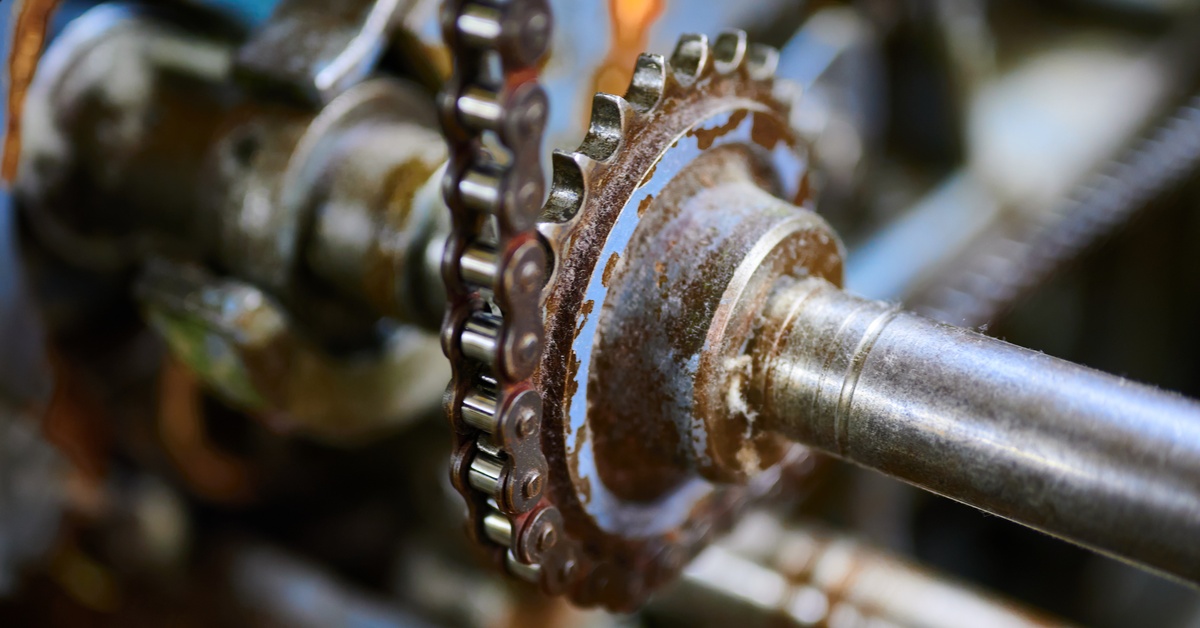As an owner of an off-highway vehicle, you know that maintaining it is crucial to its performance and longevity. From regular oil changes to tire rotations, there are many maintenance tasks that you must conduct on a regular basis.
One component that is easy to overlook is the transmission fluid. Transmission fluid is incredibly important in off-highway vehicles. When you understand the value of their role, you can learn how to take care of your equipment for long-lasting operation.
Lubrication
The primary purpose of transmission fluid is to lubricate the internal components of the transmission system, including gears, bearings, and other moving parts. Without proper lubrication, these components can grind against each other, generating excessive friction and heat. This lubrication minimizes resistance during operation, prevents wear and tear, and allows the transmission system to function efficiently.
Heat Dissipation
Transmission fluid dissipates the heat generated by the transmission system during operation. It prevents overheating, which can damage internal parts and compromise performance. This process is particularly important for off-highway vehicles that operate in extreme conditions such as:
- carrying heavy loads,
- driving up steep inclines,
- and traversing through rough terrain.

Rust Prevention
Transmission fluid contains specially formulated additives designed to prevent rust and corrosion on the metal components within the transmission system. These additives create a protective barrier against moisture and other corrosive elements that could degrade the transmission over time. This barrier prolongs the life of the transmission while also supporting operation in a variety of environments.
Seal Protection
The seals in your vehicle’s transmission system are essential for maintaining fluid levels and preventing leaks. Transmission fluid preserves the flexibility and integrity of various seals. Without seal protection, the fluid could leak, leading to reduced lubrication and damage to the transmission components.
Smooth Shifting
Well-maintained transmission fluid makes sure that gears shift smoothly by providing the necessary hydraulic pressure for the transmission system to operate. Smooth gear shifting allows the vehicle to transition seamlessly between gears, reducing wear on components and preventing jerky or delayed movements. Smooth shifting is particularly important for off-highway vehicles that frequently encounter varying terrains and high operational demands.
Cleaning Properties
Over time, debris, sludge, and various contaminants can accumulate in the vehicle’s transmission system, potentially causing clogging or damage. Transmission fluid prevents contaminants from settling on internal components. As a result, the transmission stays clean and operates properly.
Long-Lasting Transmission System
Regularly monitoring and changing the transmission fluid is a simple way to extend the life of the vehicle’s transmission system. Clean, high-quality fluid reduces friction, wear, and the buildup of harmful deposits. Proactive transmission fluid maintenance can save you from costly repairs or system replacements down the line.
Fuel Efficiency
Clean and properly functioning transmission fluid minimizes friction within the system, allowing the internal components to move more freely and with less resistance. This improved efficiency reduces the amount of energy the engine needs to use, resulting in better fuel economy.
For off-highway vehicles—which operators typically use in fuel-intensive tasks such as hauling heavy loads or operating for long hours—this can translate into substantial savings over time. Not only does this help reduce operational costs, but it also contributes to environmental sustainability by lowering overall fuel consumption.
Reduced Wear and Tear
Transmission fluid that includes anti-wear additives is specifically formulated to reduce the damaging effects of friction on internal components. These additives create a protective layer or film over parts such as gears, bearings, and clutches, preventing direct metal-to-metal contact that could gradually cause severe damage. This layer acts as a cushion, absorbing some of the stress and heat generated during operation. This level of protection is especially important for vehicles operating in industries including:
- construction,
- mining,
- and agriculture.
Proper protection guarantees that your off-highway transmissions and equipment can be reliable and long-lasting, even under the most demanding conditions.
Improved Performance in Extreme Conditions
Off-highway vehicles are frequently exposed to challenging environments, such as high altitudes with thin air, scorching summer temperatures, freezing winter conditions, and muddy terrain. Well-maintained transmission fluid is specifically engineered to function in these extremes by maintaining its viscosity and lubricating properties regardless of the environment.
Fluid maintenance will support smooth gear shifts and consistent performance. Effortless shifting is particularly important for tasks like hauling, plowing, or excavation, where dependable performance under stress is necessary.
Avoid Costly Repairs
Failing to maintain transmission fluid can lead to serious problems, such as increased friction, overheating, and complete transmission failure. Over time, worn-out or contaminated fluid loses its ability to lubricate and cool the transmission, causing important components such as gears and bearings to break down.
Repairs or replacements for a damaged transmission system can be extremely expensive. Regularly checking and replacing transmission fluid is a simple, cost-effective way to keep the vehicle in top shape.
Maintain the Manufacturer’s Warranty
Most vehicle manufacturers outline specific maintenance schedules that include regular transmission fluid changes. Following these guidelines makes sure your vehicles run properly while also preserving your manufacturer’s warranty. Skipping or neglecting recommended maintenance can void the warranty, leaving you fully responsible for covering the costs of repairs. By adhering to maintenance schedules, you help prolong your equipment’s lifespan and resale value.

Safe Vehicle Operation
Workers in industries such as construction, farming, and forestry need dependable off-highway vehicles that can provide precise gear changes, smooth operation, and navigation on uneven terrain. By keeping transmission fluid in great condition, you can ensure the vehicle operates safely.
Peace of Mind
When the transmission fluid is clean, you can feel confident that your vehicle is performing at its best. Regular maintenance minimizes the risk of sudden breakdowns, costly repairs, or unexpected delays. For off-highway vehicles, this sense of security is especially valuable because you can focus on your work without worrying about errors.
Transmission fluid plays a vital role in the overall performance and longevity of off-highway vehicles. Regularly changing the fluid is a small task that can have a substantial impact on the vehicle’s transmission system.
Don’t neglect this important maintenance task. Let Bull Powertrain help you through the process. We have transmission fluid and off-highway powertrain components to keep your equipment in excellent condition. Visit our website and browse our products, so you can take better care of your vehicle’s transmission.

